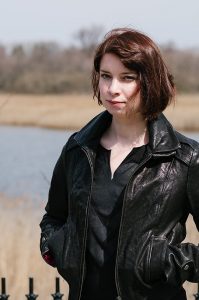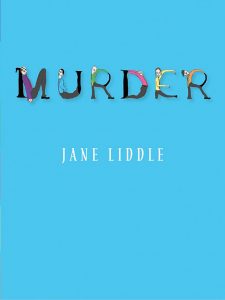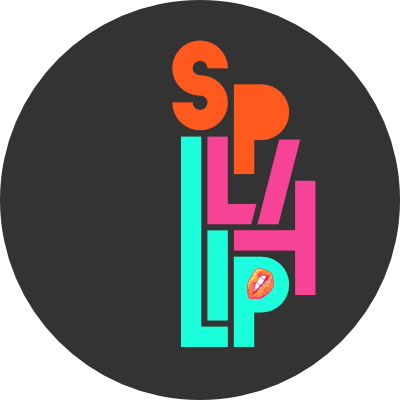
by Hannah Sloane
Jane Liddle on her debut short story collection: MURDER, out now from 421 Atlanta.
Jane Liddle’s short story collection, MURDER, contains fifty tales that examine the mundane and often accidental ways homicide occurs. Written in a humorous and detached tone that is devoid of voyeurism, MURDER is one of the most memorable debut releases this year. I caught up with Jane to find out more.
Jane, I’m curious; did you always intend to publish this collection or did the book unfold gradually through disparate stories that kept returning to a common theme?
I had always envisioned it as a collection, to be read as a whole, though some of the stories I did publish as stand-alones. I don’t think all the stories in the collection would work as stand-alones though, or at least would be as interesting. I had the idea to write different flash fiction murder stories, that when taken as a whole was a comment on murder and justice and what average people are capable of.

Click to purchase from 421 Atlanta
Interesting. Is that the overarching theme? “What average people are capable of?”
Yes. And how average people turn into average crowds/societies.
I like it. When you received your acceptance letter from 421 Atlanta did you aggressively fist pump the air or dance round the apartment naked? I cannot accept “Neither” as an answer, I’m afraid.
I was on vacation with friends at a lake house when I found out. I skipped around the living room. It was fun to have people around to instantly celebrate with.
Your stories are simultaneously hilarious, disturbing and unpredictable. Do you write with the goal of amusing the reader, surprising them, or something in between?
I write with the goal to make the reader sad. Then my people-pleasing tendencies get the better of me and I can’t help but throw a joke in there to be nice.
That’s incredible.
I can’t help it!
Earlier you mentioned writing about “average” people. Your protagonists are average but they are also nameless, referred to by their professions (“The Nurse” and “The Pickpocket”) or their unsavory personality traits (“The Weasel” and “The Scoundrel”). What is the intent behind this? Was it ever tempting to deviate?
The first couple murder drafts I wrote named the murderer. But then I thought it would be more fun to designate them by their roles in society. I guess I didn’t feel like coming up with 50 different character names.
Fair point, in “The Lifeguard” we learn the locals couldn’t forgive the murder of “such a beautiful young lady who had so much promise and trust.” It’s a familiar scene, where death is viewed as more tragic, or more worthy of media attention, because the victim is young, female, and attractive. Did any real life situations influence these stories?
No situation in particular, but a lot of the stories were influenced by patterns or tropes. Pretty white women and girls get more attention as victims than anyone else in the media, and that’s touched upon implicitly throughout the book, as well as how they might experience leniency as murderers.
That’s (depressingly) true. One of the things I found refreshing was the absence of a didactic tone. When justice is served it’s announced without glee: “The juvenile delinquent grew from a juvenile delinquent to an adult delinquent. He did not last long as an adult delinquent.” Was it difficult to maintain this unwavering narrative that’s free of judgment or empathy?
I found it easy to write free of judgment because I have complicated views of justice. Like in the example you mentioned, I’m not convinced it was “just” for someone who committed a crime underage to suffer for the rest of his life and die young in imprisonment. Glee is something I never experience when someone is served justice. It almost always makes me sad even if I agree with the punishment.
Many of these crimes seem unplanned, arbitrary. We watch unsavory characters getting away, quite literally, with murder. Aside from the pretty white girls mentioned above, how did you determine who would fall victim to the heavy hand of justice and who would see an improvement in fortunes?
Some of it was completely random, because that can be how it feels sometimes. Like for “The Rascal,” who got away with it by pure luck and the affections of a lonely housewife. But mostly I wrote the endings to reflect how I thought the current U.S. system would dole justice. And it was always with the U.S. in mind, I consider this a particularly American book.
Yes, while no justice system is perfect, it definitely read to me like an American book.
Good!
Which was your favorite story within this collection and why?
I find the women murderers in the book easier to take, or more “fun.” The men ones really depress me. So out of those I would say “The Broad.” She isn’t the villain in the story and she gets away with it. Everything works out for the broad in the end.
You got married in May. Congratulations! In the spirit of life imitating art, how would Jane Liddle bump off her new husband?
I would never! (I’d suffocate him with a pillow while he slept soundly)
Good to know! This interview can be used as Exhibit A in your trial. Does he snore?
Damn. Not really. I just think it would be easy. It’s either that or poison but then I would have to do research.
On an unrelated note, how much of the board game “Clue” did you play as a child?
All the time!
Back to your writing! It is beautifully sparse. Its brevity reminds me of Joan Didion, its descriptive simplicity similar to Haruki Murakami, and its interweaving darkness and humor redolent of Bret Easton Ellis. I’m interested to know, who are your literary influences?
I always find this question so awkward to answer. There are writers that I love (Ferrante, Atwood, all the Russians, Jacob Wren) but I wouldn’t call them influences. For this collection in particular, I don’t know if I drew from anyone else’s work, at least not consciously. Maybe Lydia Davis? I don’t think this collection is representative of what my writing is like as a whole. I was going for a particular tone, but that doesn’t carry over to the rest of my fiction. Except for the jokes.
I was planning to ask you about humor! One story opens with the line: “The terrorist was upset about taxes.” I love the absurd places you take us. Who are your favorite humor writers?
Richard Lawson comes to mind. He’s a pop culture writer and film critic (?) but I just find him a delight and honored that I get to share the internet with him.
Ah. Have you tweeted at him? Or touched the screen lovingly when a photo comes up?
I tweeted at him about a House Hunters show he was watching and he replied with “Yes!!” so I printed it and framed it of course.
I applaud that. What is your editing process? Do you employ a merciless, Gordon Lish-inspired wave of self-editing after writing an initial draft? I ask being aware of your profession and wonder if that helps feed the brevity?
My profession (copy editing) definitely helps. If I was to rewrite the previous sentence I would delete “definitely.” I was more merciless for these stories because I wanted them to have a certain newspapery tone. So a lot of deleting adverbs, adjectives, shortening, flipping. I love the police blotter, it’s very old-school.
Let’s talk about what you’ve been up to since publishing MURDER. You recently wrote: The Birds: Goodbye to all that (pigeons) about moving from Brooklyn to upstate New York. I loved this part: “So much is different for me here. I own a car for the first time in my life. I have a view of a mountain ridge and a view of a vineyard. I look forward to phone calls.” What else are you writing these days?
I’m working on a novel that takes place in my hometown. I’m also trying to write a book about daydreams, but so far it’s been scattered essays. Both these projects have been slow the past couple months since so much has happened in my life. Things should settle down soon and I hope to meet! My! Goals!
I was going to ask if you’re writing more since you left the city but I suspect getting married and moving homes isn’t conducive to writing, at least not always.
Nope. It is quite stressful. And now the house we’re renting is up for sale so I’m often disturbed by agents coming in to show the house. But I won’t get started on THAT.
Are there any books coming out later this year that you’re excited to read?
Wendy Ortiz’s Bruja, Sady Doyle’s Trainwreck, Tommy Pico’s IRL, and Tobias Carroll’s Reel.
And finally, what do you miss most about NYC? You’re allowed/expected to mention an item of food.
Pork soup dumplings. Thankfully the pizza isn’t bad here.
